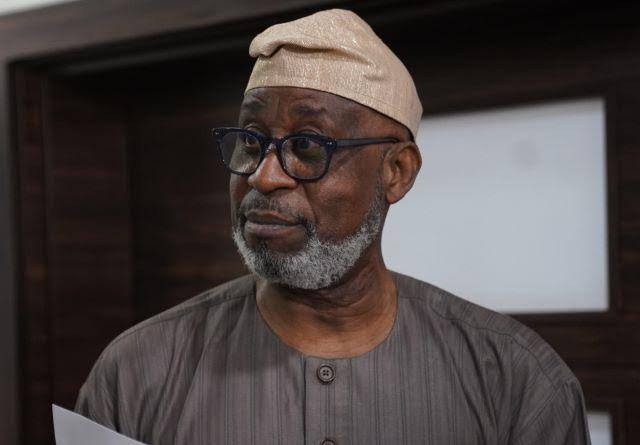Paragraph 1: Sanitizing Nigeria’s Solid Minerals Sector: A Wave of Licence Revocations.
The Nigerian Federal Government, through the Mining Cadastre Office (MCO), is undertaking a significant clean-up of the nation’s solid minerals sector. This involves revoking thousands of mining licences deemed expired, speculative, or inactive. The aim is to create space for genuine investors, curb licence hoarding, and ensure that the sector contributes meaningfully to the national economy. This move, spearheaded by Mining Cadastre Office Director-General Obadiah Nkom and Solid Minerals Development Minister Dele Alake, signals a commitment to transparency and accountability in a sector long plagued by inefficiencies.
Paragraph 2: The Scope of Revocation and its Rationale.
The MCO has targeted over 4,709 licences for revocation. This includes approximately 1,400 expired licences, 2,338 refused applications, and 971 instances where applicants failed to fulfill payment obligations after receiving notification of grant. Nkom emphasized that these revocations aren’t punitive, but rather a necessary step to sanitize the sector and instill investor confidence. The move is designed to deter speculators who acquire licences without any intention of contributing to exploration or value addition, effectively holding valuable resources hostage. By clearing out these inactive titles, the government aims to make room for serious investors committed to developing the sector.
Paragraph 3: Legal Basis and Investor Protection.
The MCO maintains that all revocations are carried out in strict adherence to the Nigerian Minerals and Mining Act of 2007, contributing to their 100% success rate in related litigations. This underscores the government’s commitment to due process and legal compliance. Further bolstering investor protection, the MCO has integrated with the Corporate Affairs Commission’s real-time verification system to ensure that only legitimate, registered companies are granted mineral titles. Applicants are also required to provide evidence of financial capacity through bank statements and letters, adding another layer of scrutiny to the application process.
Paragraph 4: Combating Impersonation and Illegal Mining.
Beyond licence revocations, the MCO is tackling other challenges within the sector, including impersonation and illegal mining. The agency has lodged formal complaints with security agencies like the Department of State Services (DSS) and the Economic and Financial Crimes Commission (EFCC) to investigate and prosecute individuals posing as MCO staff or agents. These impostors defraud unsuspecting investors by collecting money and documents under false pretenses, damaging the reputation of the sector. Nkom warned that the era of such fraudulent activities is over and decisive action will be taken against perpetrators. The MCO is also cracking down on illegal mining activities, emphasizing that holding a licence does not permit mining outside the specifically granted area. Operators are encouraged to apply for amendments to their licenses if new minerals are discovered, a process that Nkom asserts takes only one to two weeks.
Paragraph 5: Positive Impacts of Reform and Increased Investment.
Despite the ongoing revocation exercise, Nkom reported an increase in the number of mining companies operating in Nigeria. He attributed this surge to the government’s reforms, which are attracting both foreign and local investors. The reforms, spearheaded by Minister Alake and supported by President Tinubu’s administration, are aimed at creating a transparent, accountable, and investor-friendly environment. This positive trend suggests that the government’s efforts are bearing fruit and restoring confidence in the sector, ultimately paving the way for its growth and contribution to the national GDP. Local small-scale operators are also benefitting from this renewed focus, organizing themselves into cooperatives and demonstrating that mining can be a viable and profitable business venture.
Paragraph 6: The Long-Term Vision for Nigeria’s Mining Sector.
Nigeria possesses a wealth of mineral resources, including gold, lithium, barite, limestone, coal, gemstones, and bitumen, spread across over 500 locations. Despite this vast potential, the sector’s contribution to the GDP has historically remained below 1% due to various challenges. The ongoing reforms spearheaded by the MCO and the Ministry of Solid Minerals Development aim to address these historical issues, moving away from a legacy of poor regulation, illegal mining, and speculative licence hoarding. The vision is to transform the sector into a major contributor to the national economy by attracting responsible investors, promoting sustainable mining practices, and ensuring that the benefits of this resource wealth are shared equitably. The MCO, with its mandate to administer mineral titles transparently and efficiently, plays a pivotal role in realizing this vision.


